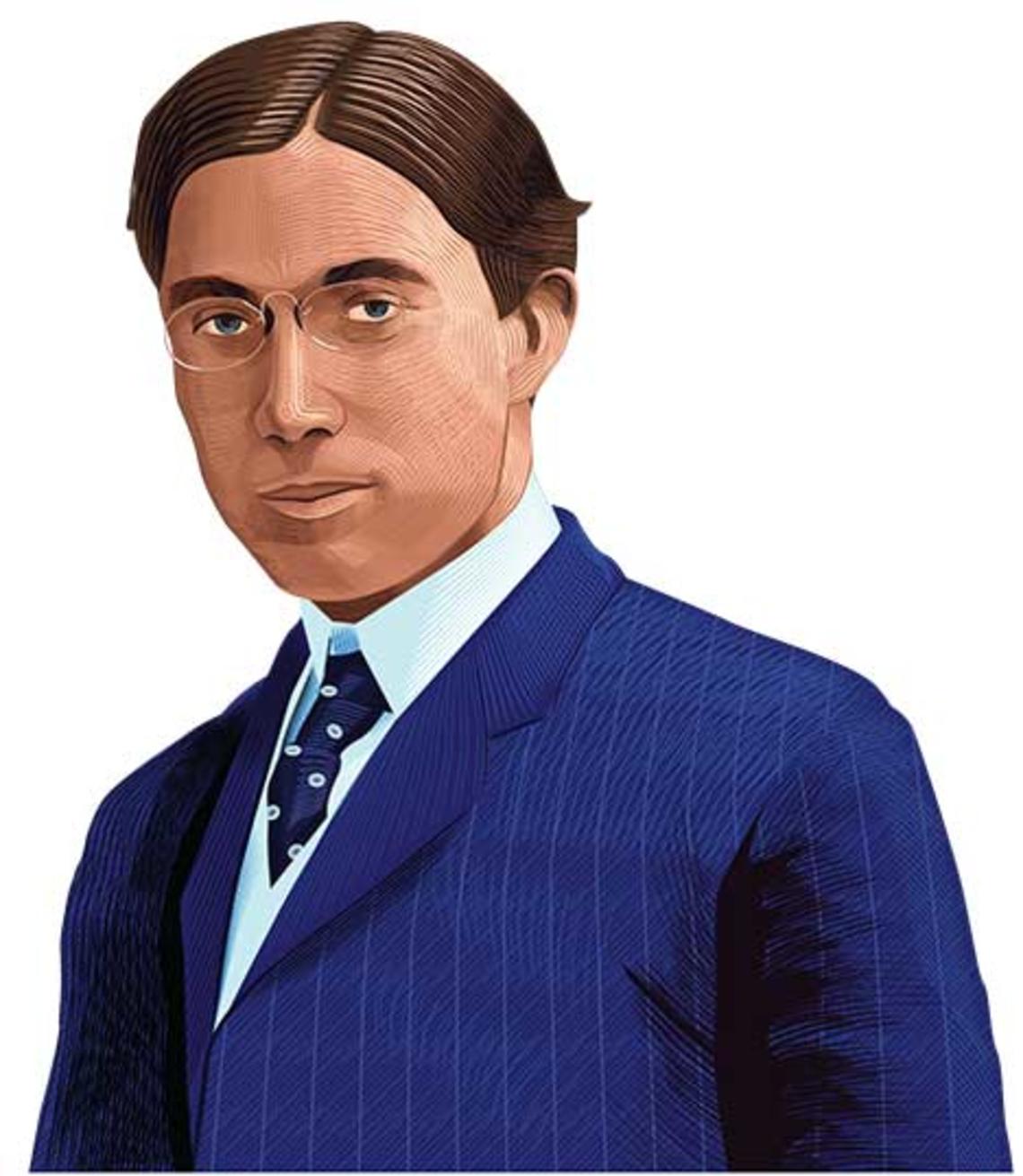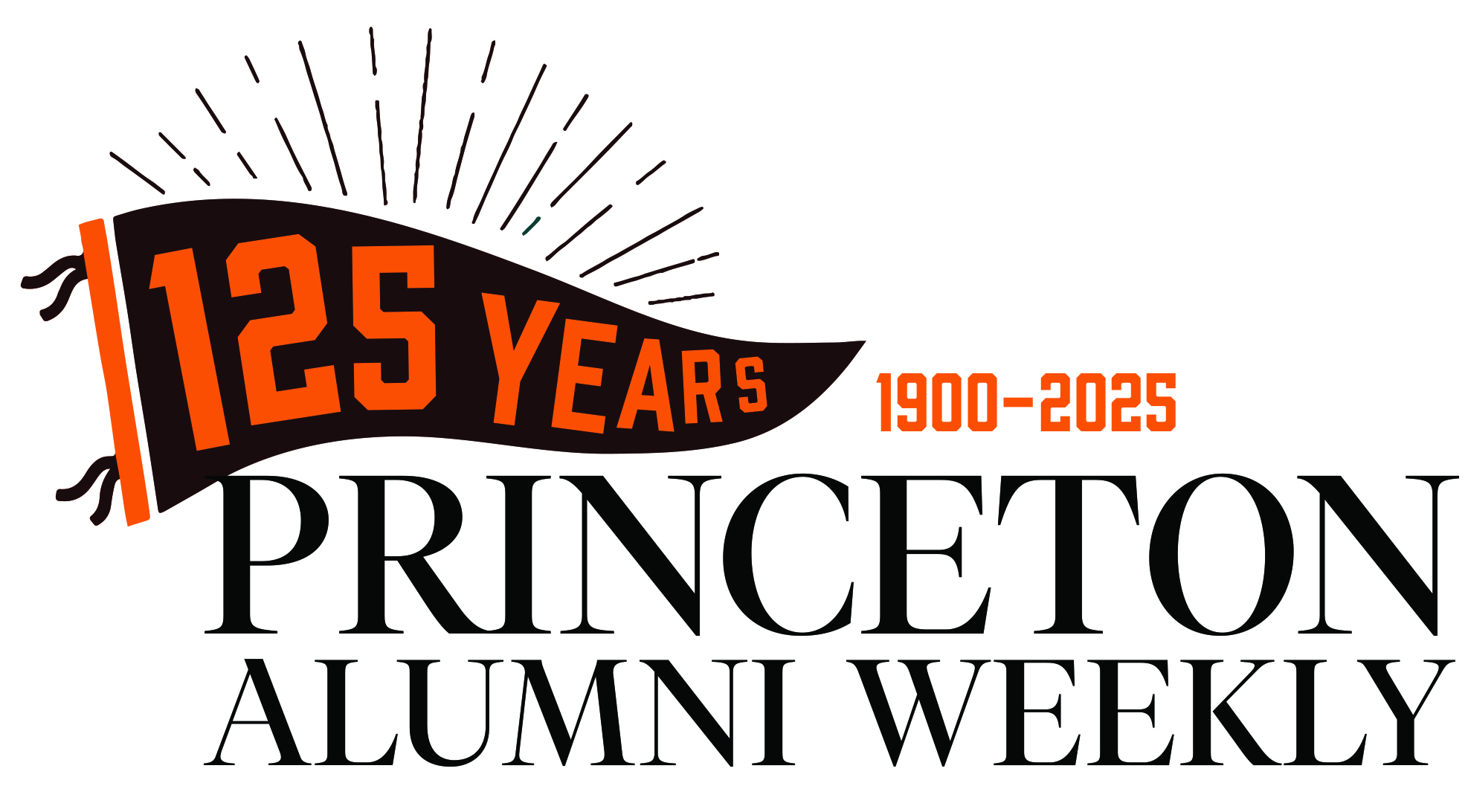
The immortal question of a 1997 review in the New York Press: “What in the name of Christ is it about Princeton that inspires such sentimental lyricism in its graduates? No other American institution of higher learning has so inspired its progeny to stick pen to paper and effuse about it to the same extent that Princetonians have effused about lilac evenings on the quad and the Pure Young Strong-jawed Sons of Nassau and all the rest of it.”
Naturally, we wouldn’t have this problem if Princeton didn’t have so many lilac evenings. But Princeton’s vast literary territory also owes much to the wicked influence of wonderful writers. Jesse Lynch Williams 1892 may have been the first writer to make Princeton his presiding subject. A co-founder of both the Triangle Club and the Princeton Alumni Weekly, Williams influenced generations of authors who wrote in thick shades of rich orange pigment. This month marks exactly 122 years since PAW’s debut.
As an undergraduate, Williams joined the Princeton College Dramatic Association, a high-minded company of serious thespians. He soon decided that campus needed fewer histrionics and more hysterics. Together with Booth Tarkington 1893, a future playwright, Williams reshaped the group — which took the name Triangle in 1893 — into the riot of comedians it is today. (“How a Triangle show ever got off was a mystery,” remarked F. Scott Fitzgerald 1917, a member of the Triangle Club, “but it was a riotous mystery anyway, whether or not one did enough service to wear a little gold triangle on his watch-chain.”)
Many writers draw their stories from a single powerful decade of life. For Williams, whose life began in college, his graduation was just the start of his writing about Princeton. In 1895, he published a book of short stories titled Princeton Stories. He followed up, in 1899, with The Adventures of a Freshman, a novel of campus life. They catalog in loving detail the college years he knew: A freshman saves his class from disgrace by stealing the bell clapper from Nassau Hall, a campus tradition. (His classmates have the clapper melted into tiny souvenir clappers “to be worn as watch-charms by the whole class.”) The freshman and sophomore classes put up bill posters denouncing each other: “They cast aspersions on you, call you fresh and green and heap ignominy on your prominent men and deride your eccentric characters.”
In Williams’ telling, students work up slang into a shared moral order: greasy poling, for studying; loafing, for slacking off; dead-gaming, for gambling. They join Whig or Clio, where they learn secret rituals and roast each other as “Blamed Neo-Platonists” or “Doggoned Transcendentalists.” Only on game days may freshmen wear “the sacred orange and black”; they seize the opportunity, wearing “yards of it, hung all over their hats, their clothes, the coach, the driver, and the horses.”
On April 7, 1900, the Princeton Alumni Weekly published its first issue. As its founding editor, Williams explained that he hoped the magazine would give alumni a continued connection to the University and thereby an incentive to stay active in its affairs: “Even though the graduates of Princeton have no voice in the conduct of their college, as yet, they ought at least to know how it is being conducted; and how well.”
Through PAW, through his stories, and through his influence on Fitzgerald, Tarkington, and other writers, Williams shaped the University’s literary voice in ways we still hear today. That voice sings, with notes as strange and soft as evening light slanting through trees on the quad. Williams’ descriptions can evoke the same memories for alumni today as they did for alumni 130 years ago: “At first he could not make up his mind whether it was vocal or instrumental, or whether it was real at all, in fact, or part of a dream like everything else perhaps. The seniors were singing, and from that part of the campus it echoes oddly, as you doubtless know.”











2 Responses
Andrew A. Hendricks ’70
3 Years AgoProposed Tribute to Triangle Founders
Many thanks to Elyse Graham ’07 for her excellent article about one of the founders of the Triangle Club, Jesse Lynch Williams 1892. I was the publications director for the Triangle Club in 1969–70 and was unaware of this outstanding Triangle alumnus.
I propose that the Triangle Club consider a tribute to the founders, Jesse Lynch Williams and Booth Tarkington 1893. It would be interesting to perform parts of Williams’ play Why Marry?, which won the first Pulitzer Prize in drama in 1918. Tarkington never graduated from Princeton but went on to win two Pulitzer Prizes for fiction in 1919 and 1922. Princeton later awarded him two honorary degrees. Perhaps excerpts from his books Penrod, The Magnificent Ambersons, Alice Adams, or other literary works could be read or performed in his honor.
Jim Shankman ’74
3 Years AgoJesse Lynch Williams’ Pulitzer
Regarding your recent article on Jesse Lynch Williams 1892 (Princeton Portrait, April issue): Many years ago, before they had an internet, I stumbled upon Williams’ Princeton Stories at a bookstore up in somewhere or other, but probably in Connecticut. In those days they had this delightful thing called browsing in which you didn’t know what you were looking for until you found it. You could spend hours not knowing and often not finding. Imagine the joy I felt several years later when I found The Adventures of a Freshman at a bookstore in somewhere or other else, possibly Massachusetts. It felt like magic. Like there was a purpose to the universe, an Intelligence guiding our lives.
But that’s not why I’m writing. I want to add that Williams wrote a play called Why Marry? that won the Pulitzer Prize in 1918. And in 1922 he wrote a companion piece called Why Not? I’m not sure I ever found copies of those plays. Nowadays it would be child’s play to locate them. The guy really was ahead of his time. Women’s rights, sequels, so much more.
My bookstore companion Joe Harbeson ’74 still has his copy of The Adventures of a Freshman, apparently a first edition. My copy, if I ever had one, has disappeared.